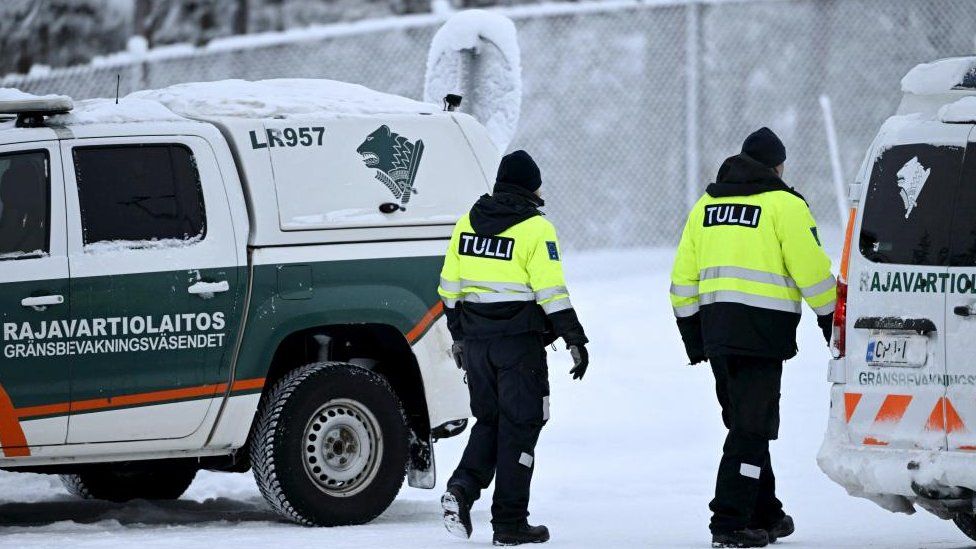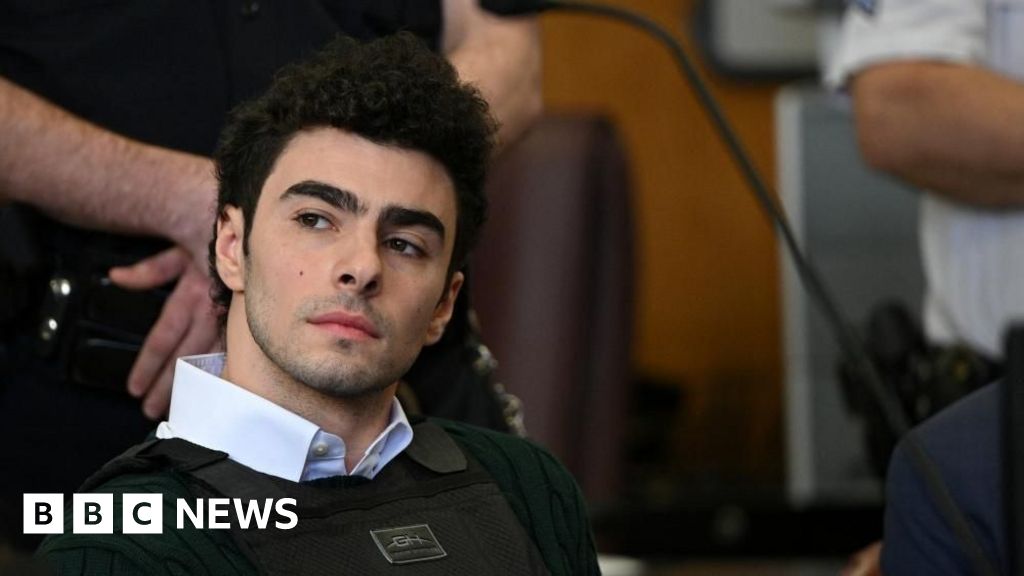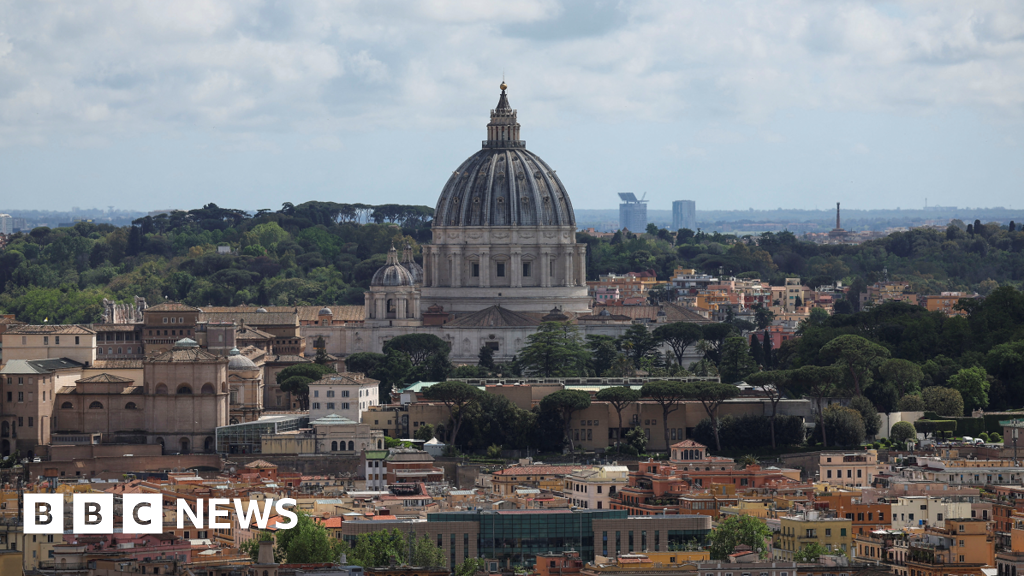ARTICLE AD BOX
 Image source, Reuters
Image source, Reuters
Raja-Jooseppi is the northernmost border crossing between Finland and Russia
By Paul Kirby & Eastern Europe correspondent Sarah Rainsford
BBC News
Finland has closed the last crossing on its long Russian border, prompting the Kremlin to condemn an "absolutely redundant measure".
The northern crossing at Raja-Jooseppi closed for two weeks at 14:00 (12:00 GMT) on Wednesday, after Helsinki accused Russia of channelling asylum seekers towards Finland.
Finland says it has become the target of a Russian "hybrid operation".
Some 900 asylum seekers have crossed the border this month.
The influx is dramatically higher than the previous number of barely one a day and Finland's border guard says before August 2023 Russian authorities barred foreign citizens from travelling to the area without the necessary visas.
Finland shares a 1,340km (830 mile) frontier with Russia and closed its seven south-eastern border crossings last week, before announcing that its far-northern crossing would also be shut temporarily.
A rail-freight line will remain open and the border guard says that in theory it is not a complete shutdown. Asylum seekers will still be able to reach Helsinki by plane.
Interior Minister Mari Rantanen said it was "a matter of national security" and on Wednesday the head of Poland's National Security Bureau announced that its military advisers would travel to Finland to provide "on-site knowledge of border security".
Jacek Siewiera said Poland was responding to a request from the Finnish president who was in Warsaw this week. His announcement on X, formerly Twitter, was illustrated with coils of barbed wire at a border fence running through a forest.
Finland's northernmost crossing was described as quiet on Wednesday. Known as Lotta on the Russian side, it is extremely remote - more than 200km from Murmansk.
The only facilities there were shut down months ago. A sign on the local petrol station and cafe announced they had been "closed indefinitely".
Russia vowed to take "counter-measures" last April when Finland completed its accession to the West's Nato defensive alliance.
Helsinki decided to join Nato after Russia launched a full-scale invasion of Ukraine. Moscow said it had made a "dangerous, historic mistake", bringing to an end a tradition of military non-alignment.
Col Matti Pitkaniitty of the Finnish border guard said they were not happy that "legal travellers" now had no guarantee that the border would be open.
They now had to choose between the Norwegian border near Kirkenes in the north, or the Estonian city of Narva to the south, he said. Finland had exchanged information with both countries to prepare for an influx, he told the BBC.
Col Pitkaniitty said the EU's border agency Frontex was sending about 50 additional officers, but when asked if they were coming from Poland, he said he was not sure and it was "not relevant for us". Their main role would be in helping with border surveillance in the heavily forested areas between crossing points, as Finnish guards had endured a "heavy load" in the past few weeks.
"There's not permanent fencing but temporary fencing structures where we have roads going across the borderline," he said. "We are entering winter conditions so it's good they know the environment."
Kremlin spokesman Dmitry Peskov warned that any increase in "the concentration of military units on our border" was unjustified: "The Finns should bear in mind that this will represent a threat to us."
Temperatures in the past week have plummeted to -30C (-22F) and half the border area is under 20cm (0.8in) of snow, he said.
The Finnish Refugee Advice Centre fears closing the borders will push asylum seekers towards the many hundreds of kilometres of forests and rivers along the long border, which could be even more dangerous.
Several hundred kilometres south of Raja-Jooseppi, on the Russian side of the Finnish border crossing at Salla, many of those who wanted to cross now appeared to have dispersed.
Image source, JUSSI NUKARI/Lehtikuva/AFP
Image caption,Until last week, would-be migrants would arrive by bike at the Russian border before crossing at Salla
At one point about 400 migrants had gathered there, many of them lightly dressed. An official said about 200 had now been taken by bus to St Petersburg.
Some interviewed by RBC newspaper said they were on student visas in Russia that would soon expire.
It is hard to confirm how co-ordinated the movement of migrants towards the Russian border has been, and whether there has been direct complicity from the FSB security service - to which the Russian border guard service belongs.
The EU's home affairs commissioner said last week that Finland's border challenge gave her a sense of deja-vu, two years after Belarus had driven large numbers of asylum seekers across its borders into Poland, Latvia and Lithuania.
The Polish advisory team being sent to Finland is expected to include those involved in a controversial operation to reinforce Poland's eastern border in 2021, when many of those trying to enter from Belarus were pushed back.
Poland's eastern border is now heavily protected with a giant metal fence and extra surveillance, including military patrols.

 1 year ago
32
1 year ago
32








 English (US) ·
English (US) ·